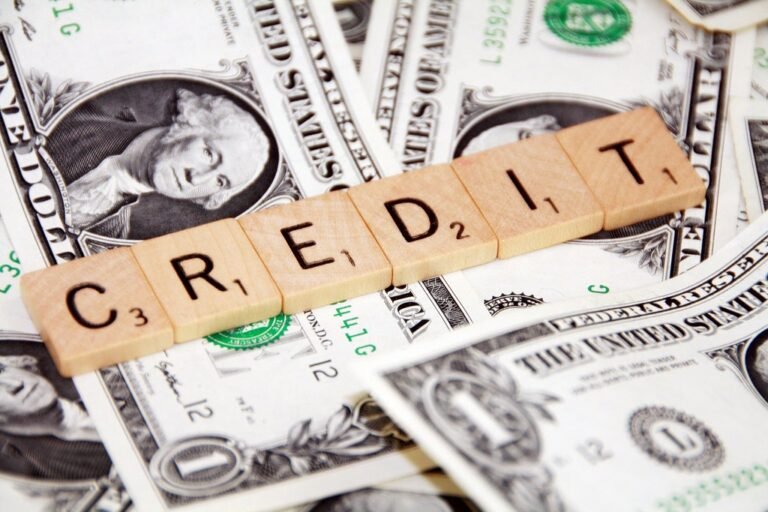How to Build Credit History
How To Build Credit History
Access to Better Financial Opportunities
Having a good credit history opens doors to a variety of financial opportunities that can benefit you significantly. For instance, I’ve noticed that individuals with high credit scores often receive lower interest rates on loans and mortgages, saving them thousands over time. A strong credit profile can be the deciding factor for landlords during rental applications or even when applying for a new mobile phone plan. The competitive edge of a solid credit history can shape your financial future in ways that might not be immediately apparent.
Supporting Future Financial Goals
Establishing credit early on supports your future goals by providing a backbone for loans you might need—be it for college tuition, starting a business, or purchasing a home. I find it fascinating that even small steps, like responsibly using a credit card, can contribute to a stronger credit file, allowing you to take advantage of opportunities as they come. Building credit history now means you’re setting the stage for comfortable financial decisions later in life.
Key Takeaways:
- Open a secured credit card or a student credit card to begin establishing your credit profile.
- Make timely payments on all bills, including utilities, to positively impact your payment history.
- Keep your credit utilization below 30% by managing your spending and paying off balances regularly.
- Diversify your credit mix with different types of accounts, such as installment loans and revolving credit.
- Check your credit report regularly to monitor your progress and identify any errors that may affect your score.
The Building Blocks of a Strong Credit History
Creating a solid credit history is much like constructing a house; it requires a sturdy foundation and the right materials. Focusing on various credit accounts, timely payments, and understanding the structure of your credit profile can lead to long-term stability. Building a strong credit history not only improves your financial standing but also opens up opportunities for better interest rates and loan approvals.
The Role of Credit Accounts: Loans, Credit Cards, and More
Credit accounts come in many forms, including credit cards and loans, each playing a role in shaping your credit history. I’ve found that maintaining a mix of different types of accounts often works in my favor. For instance, having both a credit card and an installment loan can demonstrate to lenders that I’m capable of managing various forms of credit responsibly.
Understanding Credit Reports and Scores: The Mechanics Behind the Numbers
Grasping what goes into credit reports and scores makes navigating your financial future easier. These reports compile all your credit activity, while your score reflects your creditworthiness based on that information. Personal habits, like making payments on time and keeping balances low, actively contribute to shaping these numbers, affecting everything from loan eligibility to rental agreements.
Credit reports comprised of detailed sections reveal your payment history, total debt, length of credit history, and types of credit used. Each component has a specific impact on your credit score. For example, payment history alone typically accounts for 35% of your FICO score, making punctual payments vital. Monitoring your credit report regularly can help catch errors and allow you to understand the nuances behind your score, which often ranges from 300 to 850. Understanding this information not only enhances your knowledge but also empowers you to take steps intentionally designed to build your credit worthiness and boost your overall financial health.
Strategic Approaches to Constructing Your Credit Profile
Embarking on the journey to build your credit history requires a thoughtful approach. I’ve found that focusing on specific strategies can make a significant difference in shaping a solid credit profile. From choosing the right financial products to maintaining a consistent payment schedule, every little step counts. For a comprehensive guide, check out this resource on How do I get and keep a good credit score?
Secured Credit Cards: A Step Towards Financial Independence
Secured credit cards serve as a powerful tool for those starting their credit journey or looking to rebuild. I opted for this type of card to mitigate the risk of overspending. By depositing cash as collateral, I was able to access credit without putting myself in financial jeopardy. With responsible usage, this card helped elevate my credit score and laid a foundation for future credit opportunities.
The Importance of Timely Payments: Building a Reliable Payment History
Establishing a reliable payment history is one of the cornerstones of building your credit score. I discovered that making timely payments shows creditors I’m responsible and trustworthy. Late payments can severely damage my credit score, which is why I set up reminders. Not only did it help me avoid late fees, but it also contributed positively to my credit profile, proving that consistency matters.
On a practical note, I recommend keeping a strict calendar of payment due dates and even considering automatic payments for recurring expenses like utilities or subscriptions. This way, I can ensure my payments are always on time. According to credit scoring models, payment history makes up 35% of your credit score—the largest single factor. Your reliability translates directly into better credit opportunities, making timely payments a key priority.
Keeping Your Credit Utilization Low: Finding the Right Balance
Credit utilization is another key area I focused on while building my credit. This ratio, determined by how much credit I use versus my total available credit, should ideally stay below 30%. Striving for even lower rates can yield better scores. I made it a point to pay down balances before they reported to creditors, keeping my utilization ratio healthy.
Achieving a low credit utilization rate requires some tactical planning. I monitored my spending habits closely and intentionally limited my use of credit cards. I created a budget that allowed me to pay off my balances regularly, which not only helped to maintain a low utilization rate but also kept my overall debt manageable. Engaging with your credit limits thoughtfully can significantly enhance your overall credit profile over time.
Common Pitfalls and How to Avoid Them
Building credit doesn’t come without its challenges. As I navigated this journey, I encountered several pitfalls that can set you back if you’re not careful. Recognizing these traps in advance equips you to steer clear of them, ensuring that your credit history reflects your responsible financial behavior rather than missteps along the way.
The Dangers of Opening Too Many Accounts: A Cautionary Tale
Opening multiple credit accounts in a short timespan can significantly harm your credit score. I once fell into the trap of thinking that having more credit cards would boost my score. Instead, I faced a barrage of hard inquiries that dropped my score temporarily, highlighting how too much credit too quickly can signal risk to lenders.
Ignoring Your Credit Report: The Cost of Unawareness
Neglecting to check your credit report can lead to costly surprises. I learned the hard way that inaccuracies can drag down your score, impacting your loan approvals and interest rates without you even knowing. Regular monitoring can reveal mistakes, ensuring your credit history accurately reflects your financial activities.
In my experience, not reviewing my credit report regularly cost me more than just credibility; it cost me financially. For instance, I discovered a fraudulent account listed under my name that I was completely unaware of. By addressing this issue promptly, I was able to mitigate the damage and prevent higher interest rates on loans. Ignoring your credit report is a risk you simply can’t afford, especially when a healthy score plays a pivotal role in major financial decisions like buying a home or securing a car loan.
Long-Term Strategies for Sustaining and Growing Your Credit
Sustaining and growing your credit requires ongoing, deliberate action. I recommend maintaining consistent habits that not only protect your credit score but also help it flourish over time. Building good financial habits, such as making payments on time and keeping your credit utilization low, lays the groundwork for a strong credit profile. Additionally, staying informed about credit trends and utilizing your credit responsibly can ensure that you’ll continue reaping benefits in the long run.
Regular Monitoring: Staying Ahead of Changes and Errors
Monitoring your credit report regularly allows you to stay informed about any significant changes that could affect your score. By checking your report at least annually, you can spot potential errors or identity theft quickly. Resources like some online credit monitoring services offer alerts whenever there’s activity on your credit profile, helping you take immediate action if needed.
Utilizing Diverse Credit Types: Balancing Act for Stronger Scores
Maintaining a mix of credit types can be beneficial for your score. Combining secured loans, personal loans, credit cards, and even retail accounts provides creditors with a broader view of your financial behavior. Lenders prefer seeing diversity because it displays that you can manage various types of debt effectively. Striking the right balance prevents one particular credit type from dominating your profile, which can contribute positively to your overall credit health.
- Perceiving different credit types as tools can enhance your financial strategy.
| Type of Credit | Impact on Score |
| Credit Cards | High utilization can negatively affect scores. |
| Loans | Varied loans show responsibility in managing payments. |
| Retail Store Cards | May improve score if managed well. |
| Auto Loans | Reportedly involve longer payment histories. |
| Secured Credit | Builds credit without significant risk. |
Maintaining a balance between different types of credit lets you showcase your ability to handle diverse responsibilities. I find that responsibly handled credit card accounts paired with installment loans (like car or personal loans) offer a holistic glance at your credit management skills. This balanced strategy not only contributes positively to your score but also elevates your overall credit profile, making it appealing to lenders.
- Perceiving the synergy between credit types can short-circuit your growth potential.
| Diversity in Credit | Benefits |
| Credit Cards | Flexibility and quick access to credit. |
| Personal Loans | Demonstrates responsible long-term planning. |
| Auto Loans | Establishes a strong payment history. |
| Home Mortgages | Indicates a long-term commitment to credit. |
| Store Cards | Boosts credit limits and diversification. |
Summing up
Upon reflecting, I realize that building a solid credit history is a journey worth taking. By starting with a secured credit card, making timely payments, and keeping my credit utilization low, I can steadily improve my score. Regularly checking my credit report helps me stay informed and correct any errors. As I practice good credit habits, I can unlock better financial opportunities in the future. So, let’s begin on this credit-building journey together and watch our financial confidence grow!
FAQ
Q: What is credit history and why is it important?
A: Credit history is a record of your borrowing and repayment activity, including loans, credit cards, and payment habits. It is important because it helps lenders assess your creditworthiness when you apply for new credit. A strong credit history can lead to better loan terms, lower interest rates, and increased chances of approval for loans or credit cards.
Q: How can I start building a credit history if I have none?
A: To start building a credit history, consider applying for a secured credit card, which requires a deposit that serves as your credit limit. Alternatively, you can become an authorized user on a trusted friend or family member’s credit card, allowing you to benefit from their credit history. Also, consider taking out a small personal loan or using a credit-builder loan, which is specifically designed for those looking to create a credit history.
Q: How long does it take to build a good credit history?
A: Building a good credit history can take several months to a few years, depending on your financial activities. Consistently making on-time payments, keeping your credit utilization low (ideally under 30%), and managing different types of credit responsibly will gradually improve your credit score over time.
Q: What should I avoid when trying to build my credit history?
A: To effectively build your credit history, avoid missing payments or making late payments, as these can negatively impact your credit score. Additionally, refrain from applying for multiple credit accounts in a short period, as each application can trigger a hard inquiry on your credit report. Lastly, do not max out your credit cards or take on more debt than you can manage.
Q: How often should I check my credit report while building my credit history?
A: It is advisable to check your credit report at least once a year. This allows you to monitor your progress, track any changes to your credit score, and identify potential errors or fraudulent activity. Additionally, using credit monitoring services can help you stay informed about your credit status throughout the year.








